
Cover of the 1990 and 1992 IPCC reports.
The climate crisis is one of the most urgent problems of our time. There is a pressing need to develop better science-based mitigation and adaptation policies that are respect societal values like democratic participation and justice. My philosophical work in this area is inter- and transdisciplinary, drawing on climate science, sociology, climate activism, forestry, city planning and water management.
Philosophy and climate activism
Link to WIREs Climate Change Paper
Collaborator: Paul Schütze (Osnabrück)
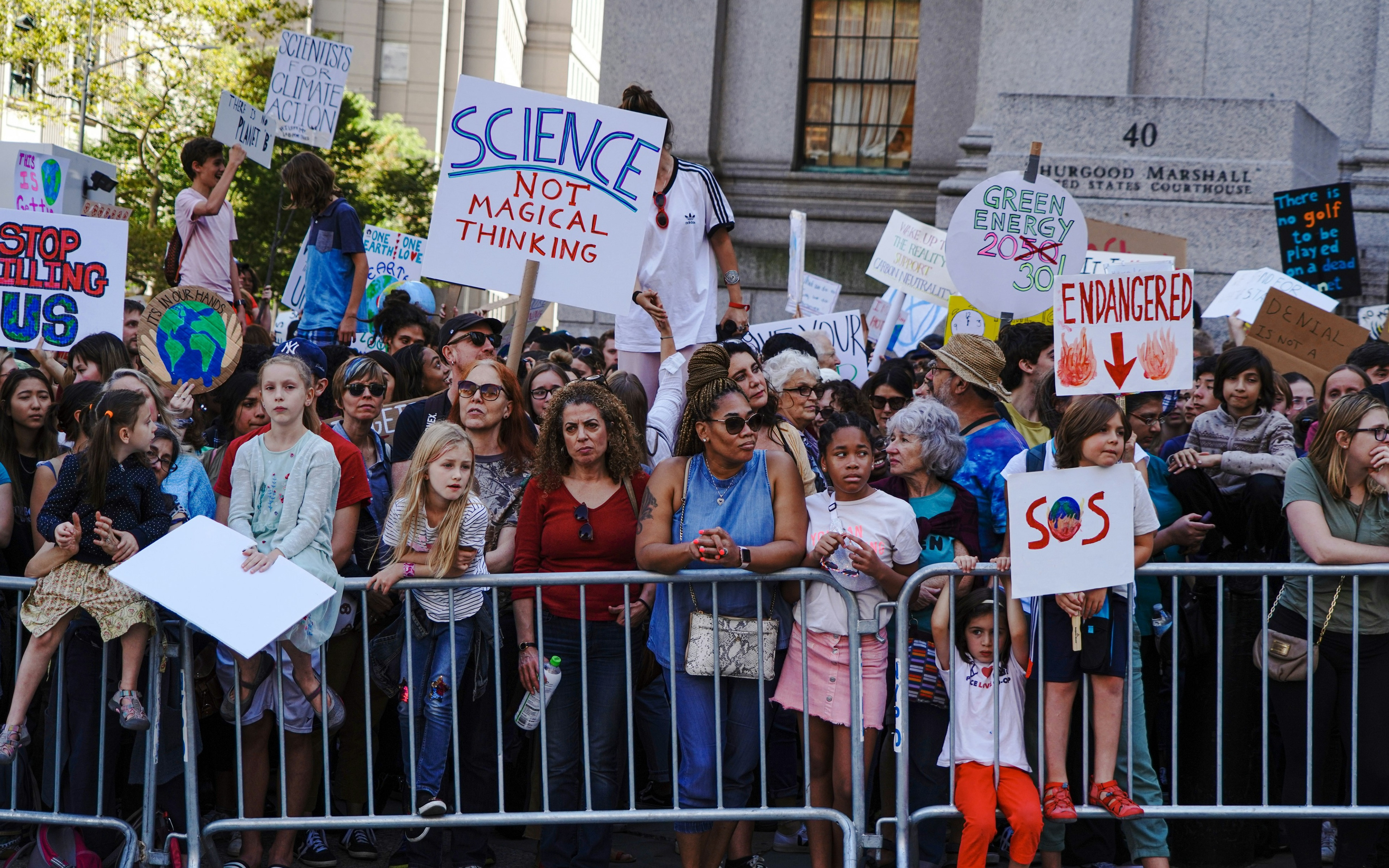
Photo from Unsplash by Katie Rodriguez.
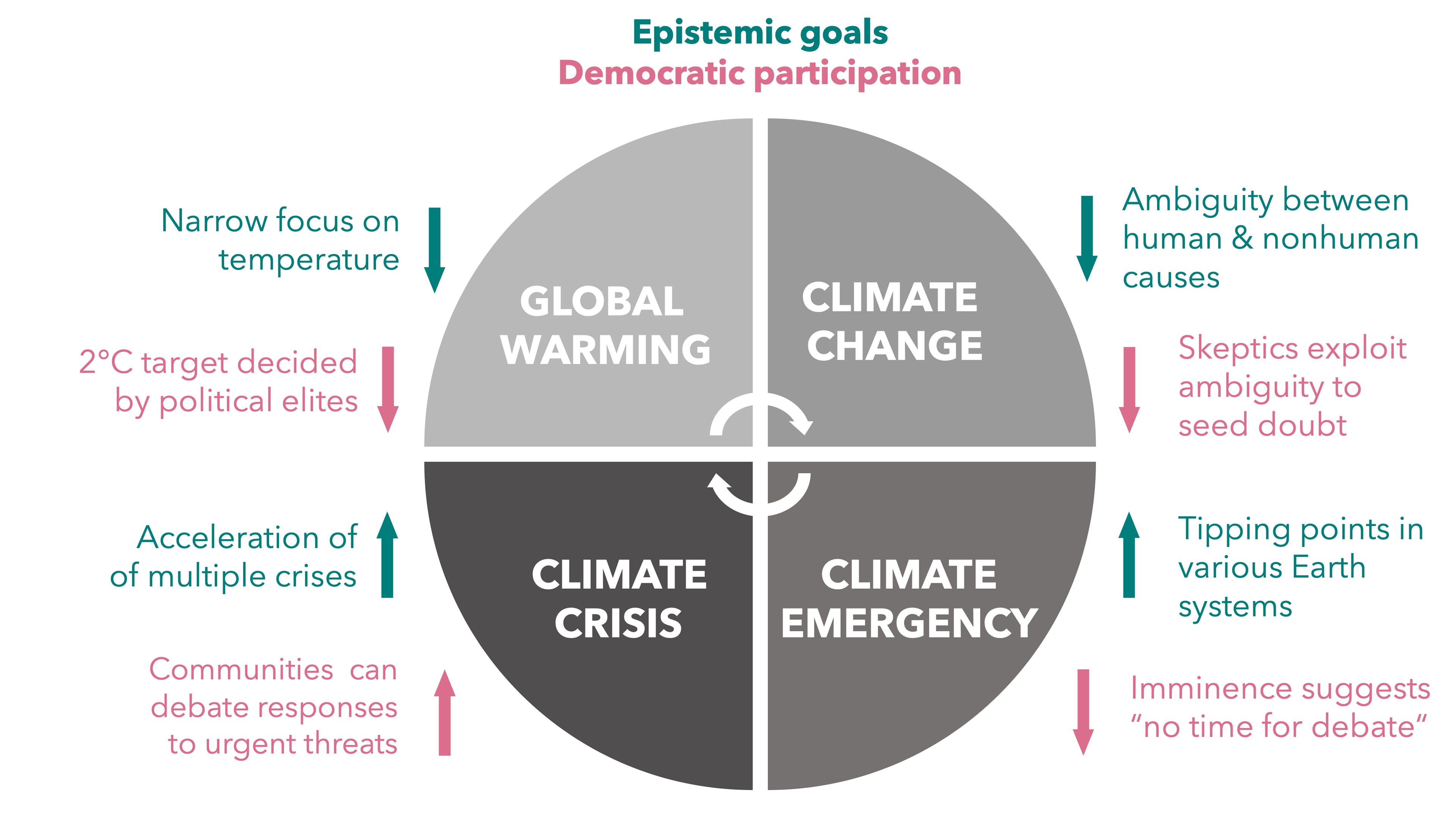
Graphic showing benefits and deficits of different climate concepts.
The climate crisis is urgent, so philosophers need to reflect on and change their scholarly practice. Paul Schütze and I propose to go "all in for climate", i.e. that philosophers find novel ways how their work can contribute to tackle the climate crisis. We argue that one way is to align work with the global climate movement, which is one of the promising agents pressing adequate climate action. Another way is to build communicative bridges between climate science, policy and activism. In my recent paper I argue that choosing "climate crisis" serves that purpose better than alternatives like "global warming" or "climate emergency".
Workshop series "Forest-city-river" on local climate adaptation
Department of Philosophy, Bielefeld University, March 8-10 & July 12-13 2023
Co-organizers: Constanze Schmidt (Wuppertal) & Karla Garcia (Bielefeld)
Funding by Volkswagen Stiftung
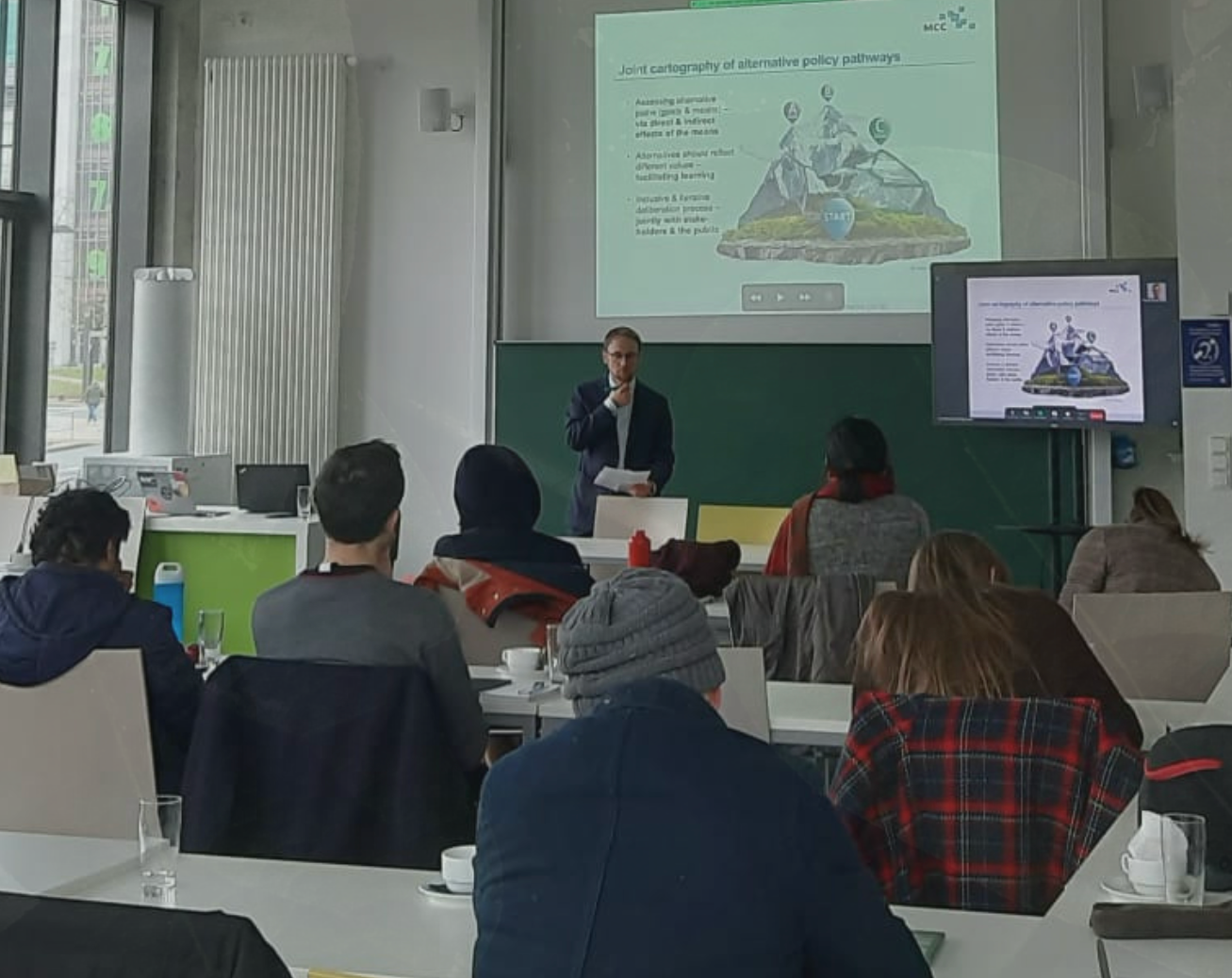
Martin Kowarsch on co-producing climate pathways
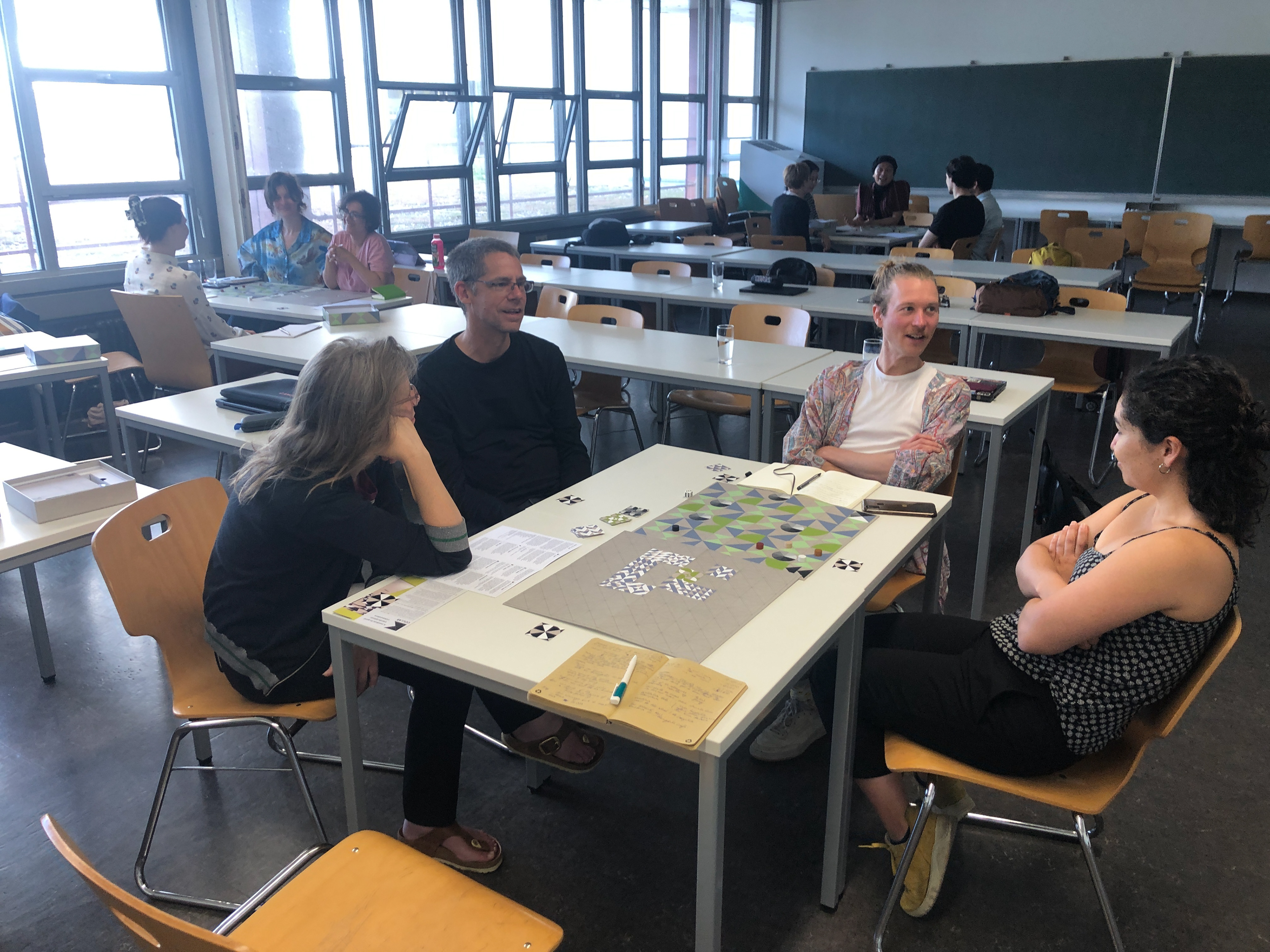
Participants play Collab, a game for interdisciplinary reflection
The workshop series discussed how regional climate models are translated into knowledge that can be used to adapt forest, cities, and rivers to the climate crisis. It combines philosophical debates on downscaling, trusworthiness and uncertainty with sociological research on usability and co-production of regional climate models for climate adaptation. It provided doctoral and postdoctoral students with the status quo on these debates and provided a forum for interdisciplinary collaborations and transdisciplinary approaches to climate mitigation and adaptation.
Workshop on climate research between science and society
Department of Philosophy, Bielefeld University
May 13 2022, co-organizer: Constanze Schmidt (Wuppertal)
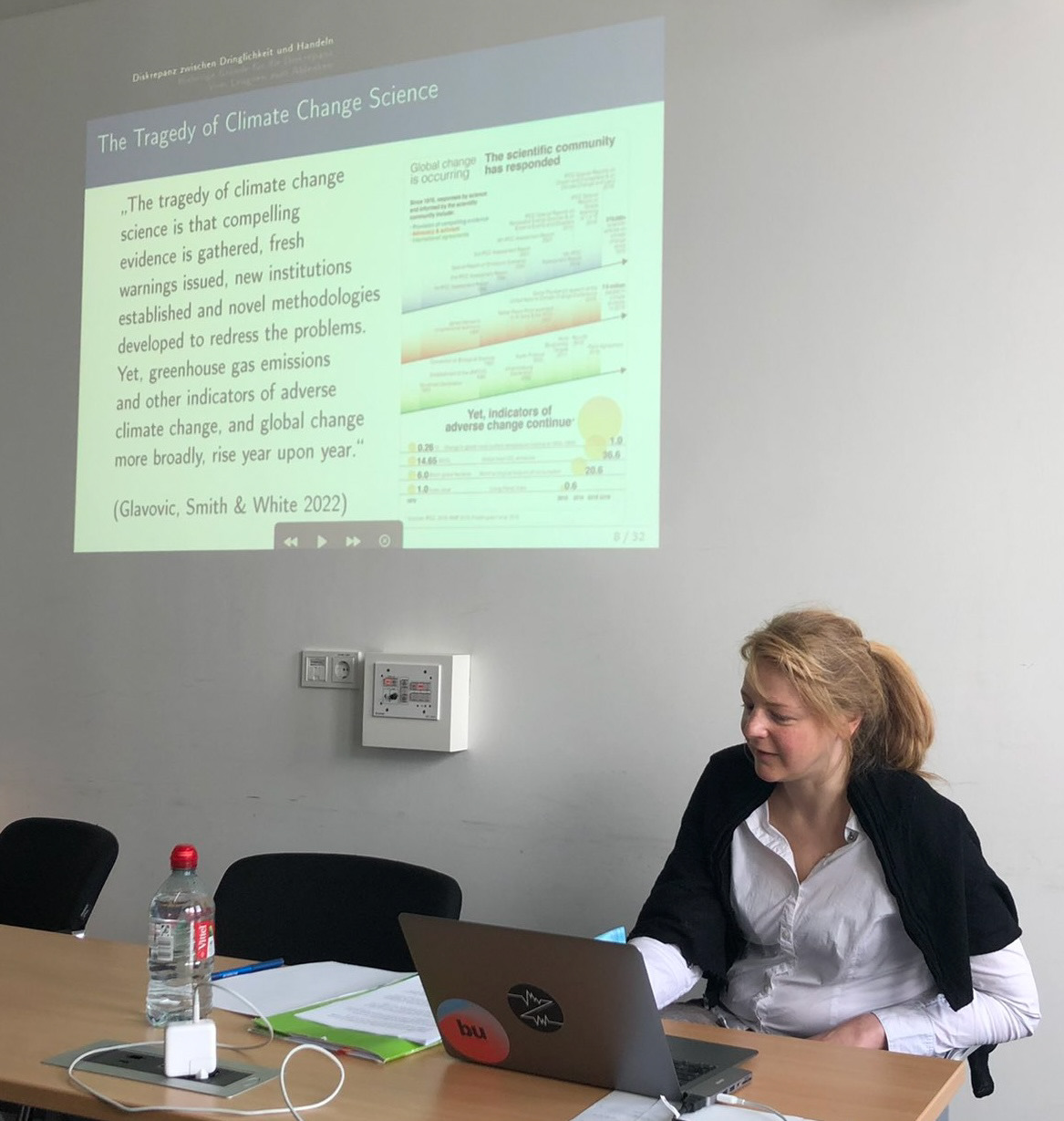
Anna Leuschner on delaying climate policy
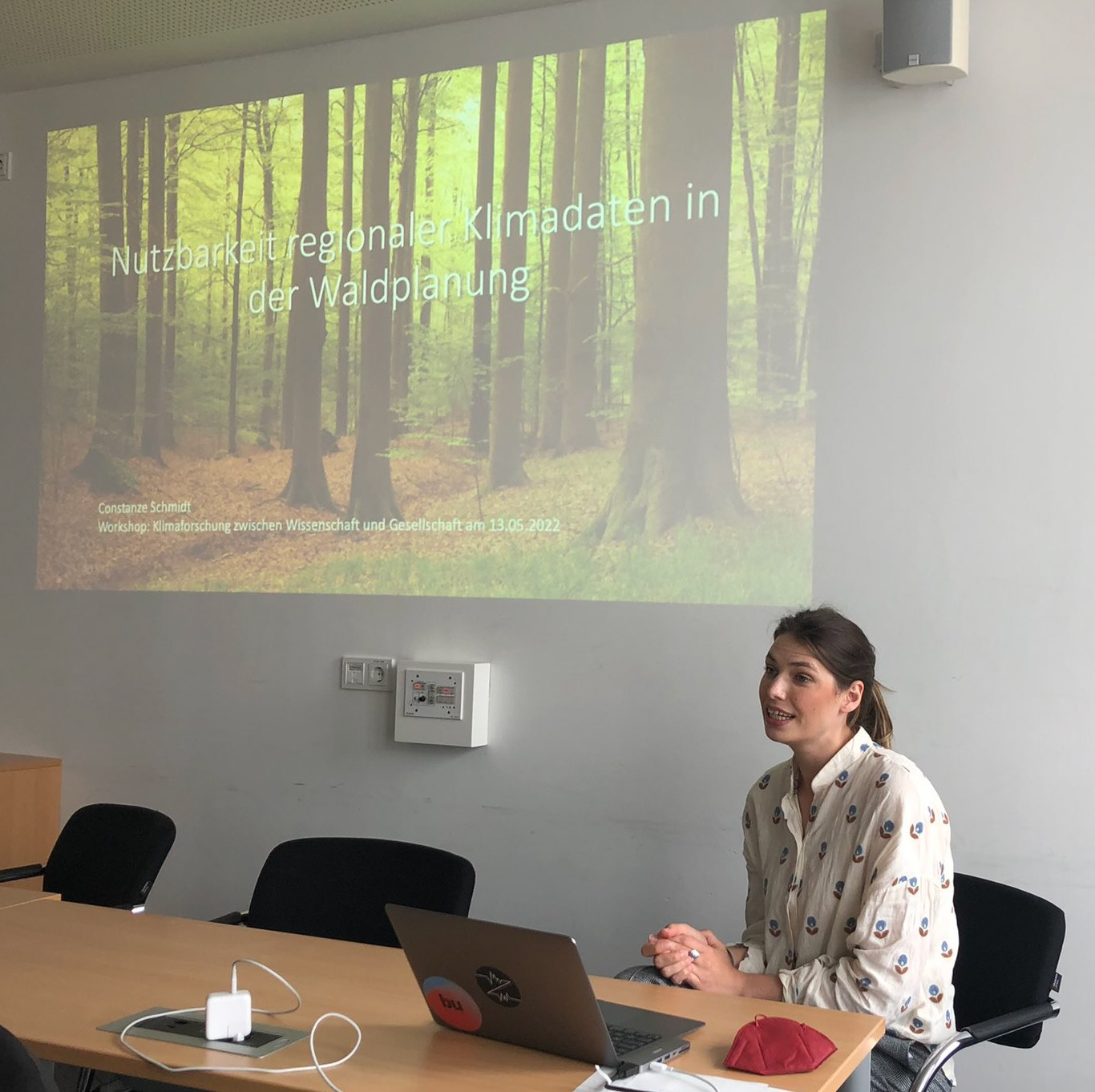
Constanze Schmidt on climate knowledge for forestry
The workshop brought together leading researchers and junior scholars from philosophy of science and climate ethics to advance current debates on the social relevance of climate research. Topics included translating climate models into knowledge for decision-making (e.g. sustainable forestry), how the fossil lobby tries to delay climate action, and how evidence-based decisions should be evaluated in relation to sustainability or ethical principles such as climate justice.